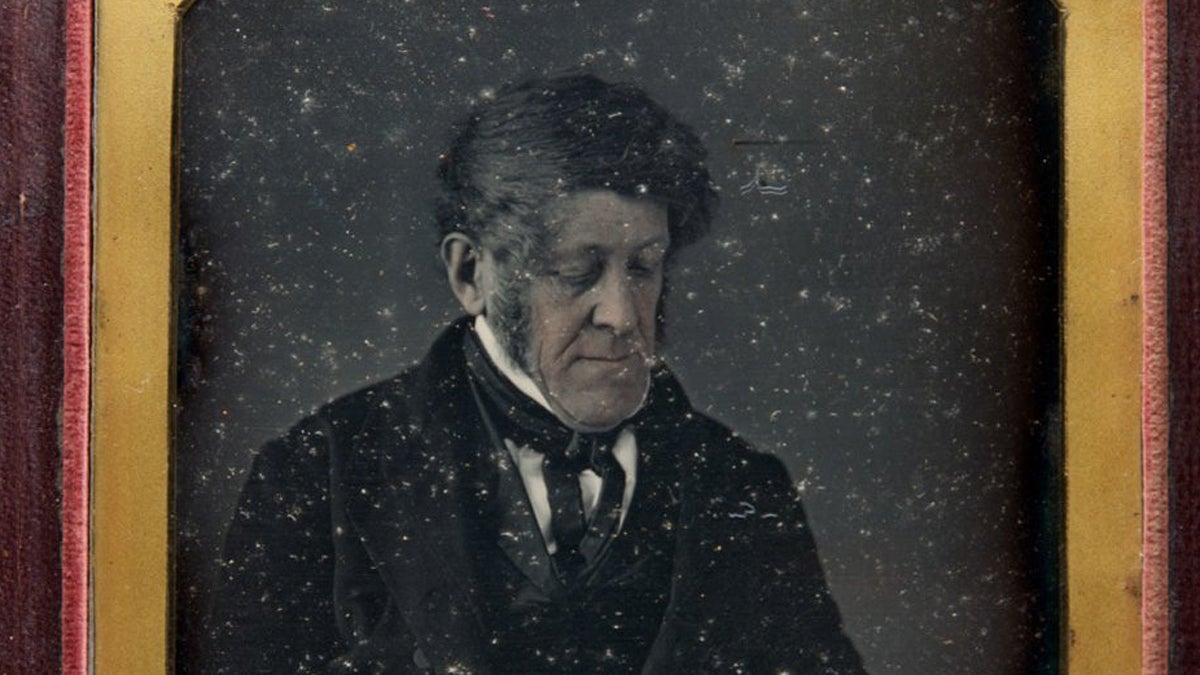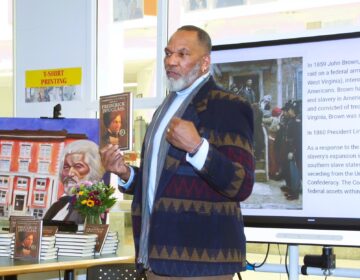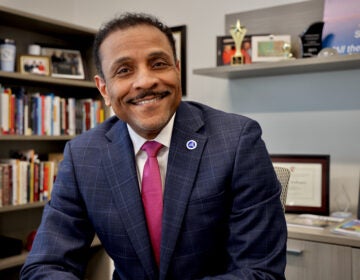The unfulfilled dream of the School District of Philadelphia

Daguerreotype of Jonah Thompson, c. 1847 (Library Company of Philadelphia)
When the School District of Philadelphia has a major problem, poor old Jonah Thompson is surely fidgeting in his grave. And the district has had some pretty serious problems since he helped establish it in 1818.
All that tossing and turning has probably popped a few nails out of his coffin, which would be a fluke, since manufacturing nails was his business. But in 1816 he was tapped to help run a different kind of business — the business Quakers inherited from William Penn in 1701 — the business Christopher Ludwick, a German immigrant, bankrolled 100 years later — the business of free schooling for the poor children “of all denominations, in the city and liberties of Philadelphia, without any exception to the country, extraction, or religious principles of their parents or friends.”
In hot haste
It was a laudable effort, except this early schooling system wasn’t comprehensive at all — one school for poor children does not a system make. Plus the run for the money pitted Quakers against the Trustees of the University of Pennsylvania. Quite literally, Quakers won the right to establish the free school because their speedy horses got them to Lancaster faster. It was a matter of getting to the rolls office first to register the charter. In those days private or “pay” schools were scattershot around the city; early attempts to make education public were scattershot as well.
As Philadelphia’s non-system expanded, school by school, boards of managers meddled with who could attend, who could teach, where school could be held. Favoritism, graft, and cost overruns plagued the administration. Does the term “inefficient” come to mind?
Sixteen tons of nails and spikes a week — that’s what Thompson and his brother were producing in Phoenixville when he signed his name to a scathing report in 1817 denouncing the system then in operation “injurious to the character of the rising generation … a benevolent fraud upon the public bounty.”
Qui Docet Discit
To correct these offenses, a group of public-minded citizens named Roberts Vaux and William Fry and John Claxton and Thomas Leaming, with Thompson, tried their hand at it in 1816.
Their idea was new to Philadelphia — a unified system of schools for poor children, paid for by (gulp) the taxpayers. With former schoolmates Vaux as chair and Thompson as secretary, this committee worked diligently to fashion a modern, albeit austere, plan to teach large numbers of children to read, write, and cipher. And by 1818, their plan became law.
These Friends and kindred stewards of various faiths chose as their tutor a Friend from London, Joseph Lancaster, whose mantra was “knowledge is power.” Lancaster’s key to reining in costs was hiring one headmaster to oversee a cohort of class-completers who did most of the instruction. In two years, the number of students swelled, and results were deemed excellent. Tightly monitored classrooms had the desired outcome: societal order through literacy. School rules governing attendance, conduct, suspension, and expenditures are remarkably contemporary. One striking difference — things were run by citizens of Philadelphia — not by the governor at the new capital in distant Harrisburg.
Be it further enacted
The city’s first reform committee, later styled “Board of Controllers,” could justly claim their efforts were an unqualified success. So successful that the concept of schooling for the common good at public expense spread across the state and, 15 years later, doors were being thrown open to the boys and girls of anyone, rich or poor. True, fired-up industries raided schools for young workers and separate-but-not-equal charity schools continued to operate on the cheap, and certain religious groups declined to participate, but the notion of education for all has endured for 180 years in Pennsylvania. From Chester to Mercer, Gettysburg to Pittsburgh, Milford to Bedford, Pottsville to Meadville.
And of all the dedicated leaders of that first reform movement, none was lauded more than Jonah Thompson in 1860, the year before his death, as “an indefatigable Secretary, whose intelligent observation abroad and experience at home contributed largely to the success which crowned the undertaking.”
Fellow reformer Claxton was outfitting Philadelphia’s ships with sails, masts, and rigging; Fry was printing the first stereo-typed Bible in America. But Thompson et al’s greatest product was not made with their hands. Theirs was by dint of reason, care, and concern. An essential, far-sighted compact with society to educate the offspring of all but perhaps the wealthiest citizens at public expense.
Snookered
Today’s School District of Philadelphia, the derivative of that first school district, struggles mightily to fulfill its compact with society in the face of attempts to privatize, monetize, politicize, un-systematize the system. In a bleak and sad way Philadelphia is behind the eight ball (a position Quaker reformers would not understand since they considered billiards a waste of time). Philly is the poorest of the nation’s big cities. Its school system is eighth largest. It only takes simple ciphering to compute the vast disparity between these two statistics. When the city finds enough dependable revenue sources to support its compact with society, maybe Jonah Thompson will rest easier.
—
Joyce H. Munro returned to creative writing after a career in college administration. She holds a Ph.D. from Vanderbilt University. Her articles on educational leadership and professional development have appeared in academic journals, and her books have been published by McGraw-Hill, Dushkin, and ETS. Her creative writing can be found in Circa, Topology, Cross-Currents, Hamilton Arts & Letters, Boomerlit, As You Were: The Military Review, ArtAscent, and elsewhere.
WHYY is your source for fact-based, in-depth journalism and information. As a nonprofit organization, we rely on financial support from readers like you. Please give today.




